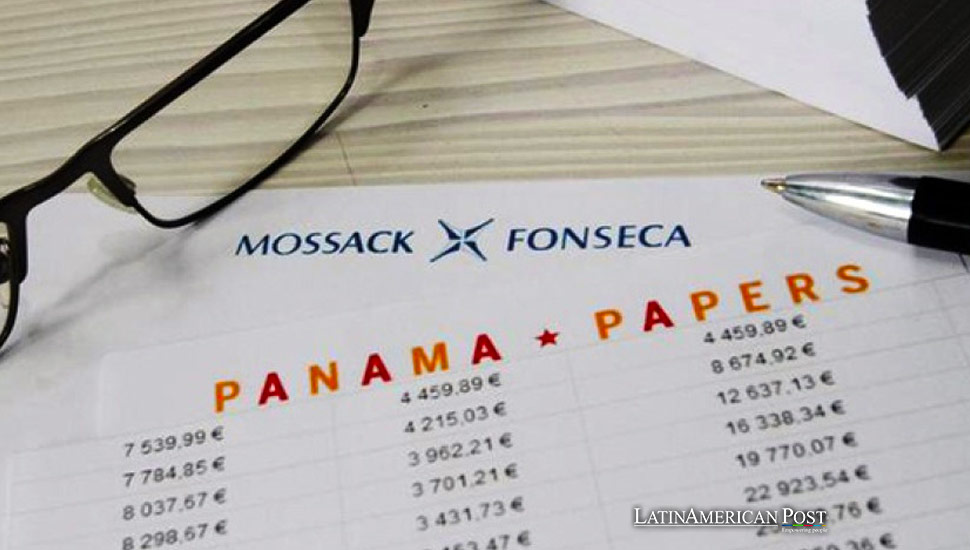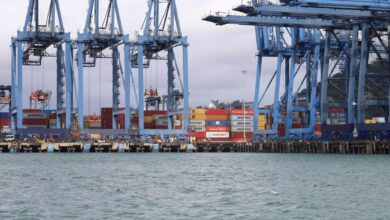Court Acquits 28 in Panama Papers and Operation Car Wash Scandals

A Panamanian court has acquitted 28 individuals charged with money laundering concerning the Panama Papers and Operation Car Wash scandals. The ruling marks a significant turn in the high-profile cases that have shaken the region.
In a landmark decision, a Panamanian court has acquitted 28 individuals accused of money laundering in connection with the infamous Panama Papers and Operation Car Wash scandals. The court’s statement, released on Friday, did not disclose the names of those acquitted but indicated that preventive measures against all defendants have been lifted. This ruling brings an end to one of the criminal processes due to the death of an unnamed defendant.
The case has been the focus of international attention since 2016 when the Panama Papers leak, a watershed moment in the fight against financial crime, exposed confidential documents from the now-defunct law firm Mossack Fonseca. The firm, co-founded by Panamanian attorney Ramón Fonseca and German national Jurgen Mossack, became infamous for facilitating offshore accounts for prominent figures, including former Argentine President Mauricio Macri, Ukrainian President Volodymyr Zelenskiy, and Argentine soccer star Lionel Messi. Similarly, the Operation Car Wash scandal, originating in Brazil, has reshaped political and business landscapes across Latin America.
Legal Complexities and Chain of Custody Issues
Judge Baloisa Marquinez, who presided over the case, ordered the lifting of all preventive measures and fined ten witnesses 100 balboas ($100) each for failing to comply with court summonses. The judge highlighted significant issues with the evidence, particularly concerning the chain of custody of data collected from Mossack Fonseca’s servers. This lapse in handling critical evidence was a decisive factor in the acquittal.
The Panama Papers leak unveiled a vast network of offshore accounts and shell companies used for tax evasion and money laundering. Despite the revelations’ explosive nature, Panama’s legal process has faced numerous challenges. The judge’s ruling underscores the difficulties in prosecuting complex financial crimes, especially when evidence management does not meet stringent legal standards.
The acquittal has sparked debate within Panama and beyond. Critics argue that the ruling undermines efforts to hold influential individuals accountable. In contrast, others see it as a failure of the legal system to adapt to the complexities of modern financial crime.
Operation Car Wash and Regional Implications
The Operation Car Wash scandal, originating in Brazil, exposed a massive corruption network involving top political and business leaders across Latin America. The investigation began in 2014 and led to the imprisonment of dozens of high-profile figures, including several former presidents. The Operation Car Wash cases were closely watched in Panama as they intertwined with the Panama Papers revelations.
Judge Marquinez ruled that it could not be conclusively determined that illicit funds from Brazil had entered Panama intending to conceal crimes. This conclusion and the issues surrounding the Panama Papers evidence significantly weakened the prosecution’s case.
Operation Car Wash’s impact on Latin America has been profound, highlighting the pervasive nature of corruption in the region. The scandal has had lasting political and economic repercussions, leading to greater scrutiny of financial practices and increased demands for transparency and accountability. However, the recent acquittal in Panama raises questions about the effectiveness of these efforts and the challenges of cross-border legal cooperation.
Broader Context of Financial Scandals in Latin America
Financial scandals like the Panama Papers and Operation Car Wash have spotlighted the use of offshore accounts and tax havens in Latin America. These cases have revealed the intricate ways the wealthy and powerful can exploit financial systems to hide assets and evade taxes.
The Panama Papers leak involved over 11.5 million documents detailing the inner workings of offshore financial dealings and implicating numerous global figures. The fallout from these revelations has been significant, leading to resignations, investigations, and policy reforms in various countries. Yet, the recent court ruling in Panama shows that securing convictions in such complex cases remains a formidable challenge.
The acquittal of the 28 individuals has brought mixed reactions. On one hand, it highlights the difficulties in prosecuting high-profile financial crimes, particularly when evidence is mishandled. Conversely, it underscores the need for more robust legal frameworks and better international cooperation to address the sophisticated methods used in money laundering and tax evasion.
The Panama acquittal serves as a catalyst for urgent calls for legal and financial reforms, both within the country and across Latin America. Strengthening the integrity of the judicial process, ensuring proper evidence handling, and enhancing international collaboration are not just crucial, but imperative steps toward more effective prosecution of financial crimes.
Moreover, this case underscores the dire need for transparency in financial dealings and the necessity for stricter regulations to prevent the misuse of offshore accounts. The global nature of these scandals demands a coordinated response, with countries working together to close loopholes and enforce rules that promote accountability.
In Panama, the ruling has reignited discussions about the country’s role as a financial hub and its commitment to combating money laundering and corruption. The government may face pressure to implement reforms that enhance the transparency and accountability of its economic system. The acquittal, while a setback, also presents an opportunity for Panama to demonstrate its commitment to reform and regain trust in its financial sector.
A Turning Point in Financial Crime Prosecution
The acquittal of 28 individuals in connection with the Panama Papers and Operation Car Wash scandals marks a significant moment in Latin America’s ongoing battle against financial crime. While the ruling underscores the complexities and challenges of prosecuting such cases, it also highlights the need for continued efforts to strengthen legal frameworks and international cooperation.
As Panama and other Latin American countries reflect on this ruling, the broader financial transparency and accountability implications remain clear. The fight against corruption and economic crime is far from over, and this case serves as a reminder of the importance of vigilance, reform, and collaboration in pursuing justice and maintaining the integrity of financial systems.
Also read: Panama’s New Government Aims to Restore Confidence with Fresh Cabinet
The path forward will require a concerted effort from governments, legal institutions, and international bodies to ensure that financial crimes are effectively prosecuted and those responsible are held accountable. By addressing the challenges highlighted by this case, Panama and its neighbors can work towards a more transparent and just financial landscape.





